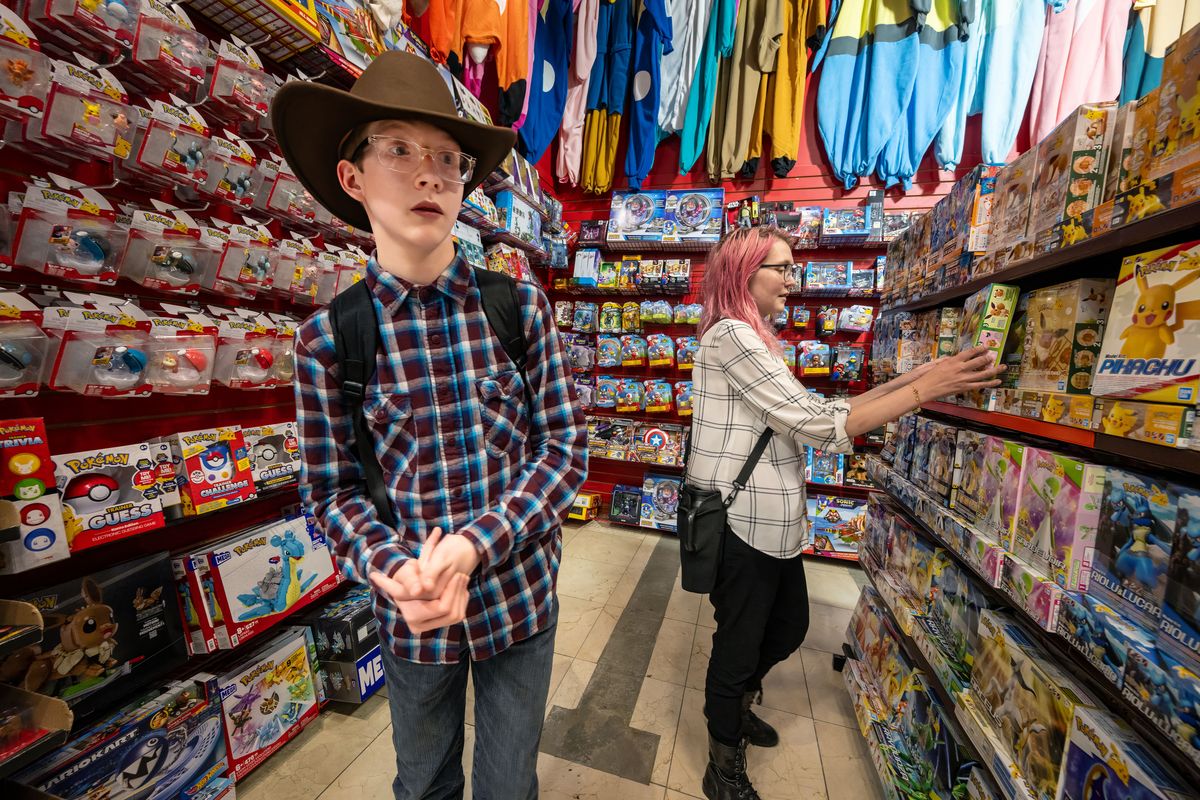Kids with special needs learn independence and connection through local nonprofit’s special day camp

A group of kids and teens from around Spokane County has spent the past four weeks adventuring about the city – going out to eat, enjoying Riverfront Park and taking the city bus.
But these aren’t young people just hanging around. They are involved in a day-camp-style summer program designed to help those with neurological differences learn and apply skills such as executive functioning, social reciprocity and regulating emotions.
Run by local nonprofit the Isaac Foundation, the program is called TREK, which stands for Teachable moments, Reverse inclusion, Education and Kinship.
It began last summer and was so successful that the program expanded so that TREK now exists in a part-time after-school format September through June.
What makes TREK special, according to Isaac Foundation Executive Director Holly Goodman, is partnering neurodivergent youths with peer mentors – often, local high school and college students.
“The whole point is that we are trying to teach executive function skills while accessing the community, but also doing it while building relationships with other people,” Goodman said.
On a recent Wednesday, kids in the program – called adventurers – and mentors gathered to prepare for a day in the community.
Between gossiping, cooing over Princess Snickers (the foundations’ pet ferret) and taking roll call, group leaders outlined the day’s plan.
First, the group would ride the bus to the Browne’s Addition Farmers Market. They would eat lunch at Riverfront Park, then, some campers would take the bus to Chaos Arcade to practice the route for another trip. The others would spend the afternoon at Mobius Discovery Center.
Other notable adventures include trips to the Comic Book Shop at the NorthTown Mall and the Lego Store. Other times, officials from the Spokane Police and Fire Departments visit the group to talk about situational awareness, and to teach fire safety.
Each program lasts Monday through Thursday, 11 a.m. to 3 p.m. The last summer session was this week, closing a successful season when enrollment doubled, according to Goodman.
Angela Horvath, a clubhouse facilitator with the foundation, estimates more than half of TREK adventurers are returning and will participate in programming throughout the school year.
Beyond her role as facilitator, Horvath, her son, Josh, and their family have been involved with the Isaac Foundation for five years.
“It’s so awesome, how much (the foundation) has done for these kids,” she said.
Many adventurers in the program are on the autism spectrum, and some have rare disorders and complex medical conditions.
“For those parents, they come in and they get a little emotional because, you know, they’re seeing (their kids) have friends and doing things that are very typical, that you would see every other kid in the summer doing,” Goodman said. “We don’t often get that, as parents that have kids with special needs.”
For peer mentors without neurological differences, the program has been equally meaningful.
Some parents volunteer their kids to mentor for a week, Goodman said, and kids will come back – “because they’re having fun.”
A lot of mentors have spent little time around people who need extra support, Goodman said. Some go to private schools, which aren’t required to provide Individualized Education Programs, and don’t have many people with disabilities.
“Through spending the week together, they understand that some of the things, the accommodations, or the scaffolding, if you will, is really not a big deal,” Goodman said. “It actually can be so simple, the things that we do differently in order to help out friends be able to enjoy an activity that the rest of us take for granted.”
The energy was palpable this week as adventurers, ranging from 6th to 12th grade, and mentors, chatted excitedly about the day’s plans. TREK wants such experiences to last for years to come.
“We all want friends,” Goodman said, “We all want connection – it (just) looks different sometimes.”